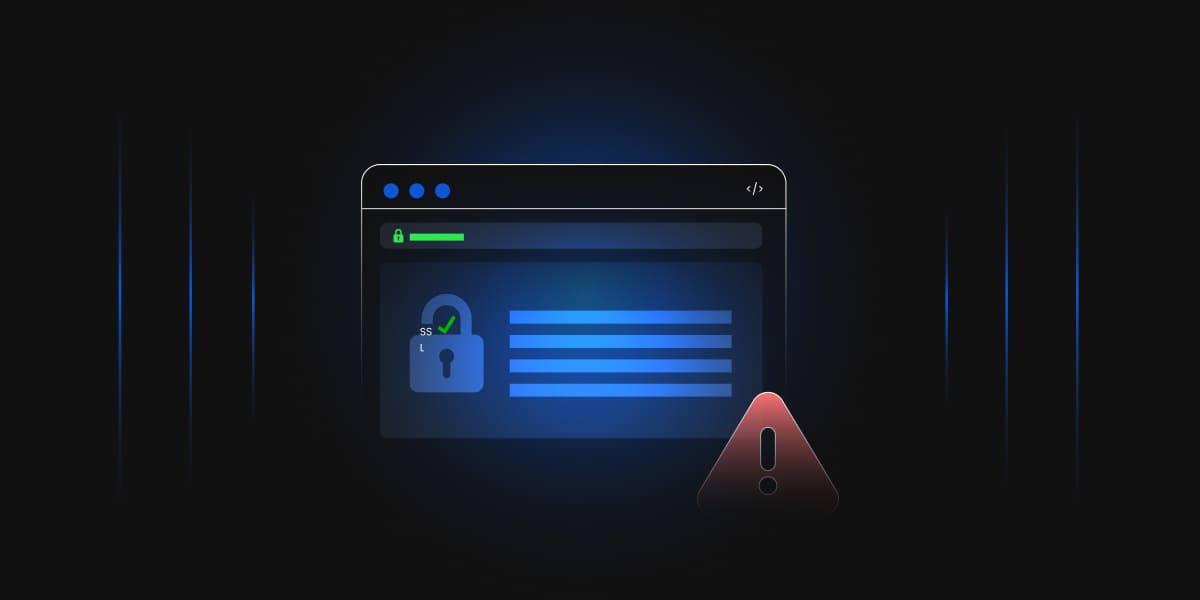Fixing Expired SSL Certificates – Why and How?


In today’s Internet world, the image of a green pad lock in the browser is unanimously thought to be a synonym of trust. This green pad lock is being used to represent active and valid SSL certificates, indicating the trustworthiness in terms of security and proper authentication of your website. Protecting your website is crucial for your organization’s reputation and gaining customers’ trust.
SSL (Secure Socket Layer) provides end-to-end security between the client and server, by establishing a secure channel with the help of encryption. SSL exchanges the cryptographic information on behalf of the client and server and forms a trust relationship between them to ensure the information exchanged is private and secure.
One of the most important aspects in the SSL certificate lifecycle is its expiry. The dates associated with the expiry of the certificate play a very critical role to provide assurance of the server’s security landscape. The validity of the server’s certificate presents the unique identity of the server to the browser to comprehend the identity of the server.
Fixing expired certificates without any prolonged delay is vital to any organization to avoid any data theft or damage. Websites with no or expired certificates are prone to attacks which lead to serious consequences.
There have been long debates in regard to why long-lasting certificates don’t exist.
The answer is very simple – Security. Let me explain you why & how.
The certificate enables two attributes: Authentication and Encryption
The authentication attribute of a certificate validates and verifies the true identity of the end entity, i.e., domain, by various means during the validation process. Based on the validation process outcome, certificate is supposed to be issued for end entity to owner A.
Now, let’s assume the ownership of the end entity changes from owner A to owner B, however, the certificate issued to the end entity is still valid. What if the new owner B misuses the certificate or domain in the name of owner A, as the certificate still contains the information proprietary to owner A. Thus, it’s important for Certificate Authorities that are issuing trusted certificates to ensure that the information they’re using to authenticate domains and organizations is as up-to-date and accurate as possible, hence it is mandatory to associate an expiry date with the certificate.
As mentioned earlier, every SSL certificate has a validity period associated with it. Once this period is over, the SSL certificate becomes invalid and the browser starts displaying a warning message on the webpage.
In general, the validity period of SSL certificates is 3 years or less. During this period, the certificate signifies that the information contained therein is accurate and up-to-date. This also manifests trustworthiness, legitimate ownership of the domain, security, and privacy on the platform.
It is important for your organization to monitor the certificates regularly and renew them before they are expired. In the field, the Certificate Authority vendors send out notifications at regular intervals for the renewal of the certificate to be expired in the near future, else the expired certificate might result in an outage for the business users and mission-critical applications. In addition, there are vendors which provide certificate lifecycle management solutions through their proprietary software. These software solutions automate the overall certificate lifecycle management process, including renewal of the certificates.
Organizations should always be alerted before the certificate is expired, however, that’s not the case all the time. Following is the way to renew an expired certificate:
Renew the expired certificate
This can be generated on the platform of your SSL service provider or by contacting your SSL service provider.
You need to select the appropriate SSL certificate as per your requirements. There are various certificates that carry different validation levels
Domain validation is needed in order to prove ownership of the domain by your organization. In general, there are three methods for domain validation:
Once the domain validation is completed, a new certificate is issued for your domain. Once the new certificate is received via email, you can go ahead and install the certificate on the server or appliance.
Note: In general, the SSL certificate can be renewed before the certificate is expired. If the certificate is already expired, then you might need to raise a new request to issue a new certificate.
When using an expired SSL certificate, there is a continuous risk to the encryption and mutual authentication of website. Websites with expired certificates are prone to attacks by hackers. Unsecured websites could be hacked and critical information might be leaked out.
Browsers show a warning message for websites with expired certificates. This might result in the loss of business for your organization, as some prospective customers might choose not to initiate business communication with someone who is not secure.
In the Internet age, a secure online presence presents lots of business opportunities, with respect to prospective customers however, this requires your SSL certificate to be up-to-date to maintain a trust relationship.
Keeping SSL certificates active is crucial in maintaining authenticity and trustworthiness of your website. In addition to safeguarding the information, SSL certificates help to establish positive customer impacts. Understanding certificate expiration and why to fix expired certificates is important in enhancing the reputation of your brand and business.